Is multitasking effective?
No, it isn’t!
Multitasking does not work!
An avalanche of interruptions constantly distracts us.
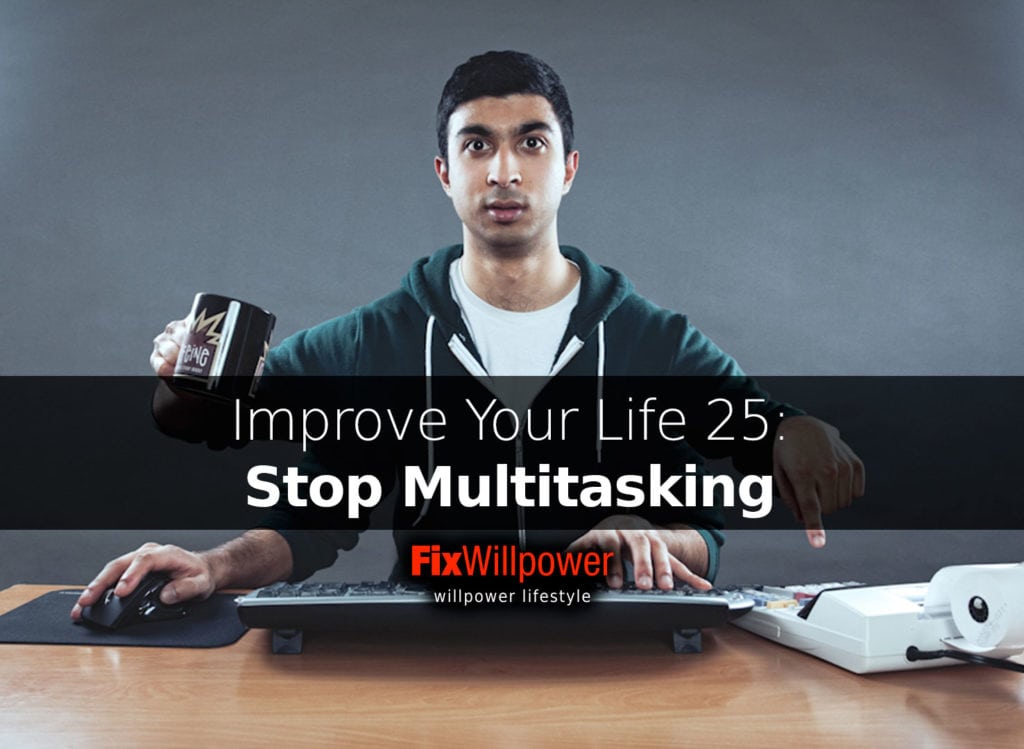
Research (Gloria Mark) shows that in an office environment we have only 11 minutes on any task before someone interrupts us.
What’s even more disheartening, it takes 25 minutes to return to the task. And even that 11 minutes is fragmented between different sub-tasks of email, web, office applications, approximately 3 minutes a piece.
When you get interrupted more than twice every hour, then you may not do any meaningful work at all.
According to the numbers above, it will take 3 hours and 16 minutes to get an hour of work done on a project.
And you can’t switch tasks between projects to get an hour on one project. So, your 8-hour workday at the office boils down to 2 hours and 27 minutes of actual productive time. The time is fragmented into pieces so small that no real focusing can occur.
Fix it and you can double your productivity!
Here’s a short video that illustrates multitasking and adds commentary at the end.
Here’s what happens when you attempt to multi-task. Learn more in John Medina’s book, “Brain Rules.”
And multitaskers themselves think they are just fine.
Over 70% of the participants in a study Who Multi-Tasks and Why? estimated that they are better multitaskers than average. The actual multitasking performance of participants was not related to their opinion about their ability. One interesting finding was that people most capable of multitasking effectively were least likely to do it.
Multi-tasking activity as measured by the Media Multitasking Inventory and self-reported cell phone usage while driving were negatively correlated with actual multi-tasking ability. Multi-tasking was positively correlated with participants’ perceived ability to multi-task ability which was found to be significantly inflated.
I have seen people who really think they are great multitaskers. Many people are looking for tips on how to multitask.
This is stupid!
Don’t do that!
In most cases, it’s just not true that you can be an effective multitasker. I really hope the point of the research cited above sunk in.
Do not multitask!
Here are some tactics that help you stop multitasking:
Planning
Plan specific tasks and in time slots. I use a 1-2-3 method where I have one most important thing per day, two other larger tasks, and 3 smaller tasks. Each of these gets an equal share of time. One important task gets two 40-minute slots, two other larger tasks get 40-minutes each, and the three smaller tasks share two 40-minute slots.
I separate all of these 40-minute periods with 20-minute breaks. A break means that you can do whatever you want. Make coffee, go for a walk, interrupt co-workers, anything goes. Of course, you can use that time for email, phone calls, and other urgent but small tasks that you can’t plan for. However, make sure you spend at least some of the break for relaxing.
There is one exception to the breaks. If you hit flow stat with your big task of the day, you can skip the break and spend the entire 100 minutes on the task, but after that time take a break even if you are not interrupted.
To make this happen, you need to manage your work environment so that nobody can interrupt you.
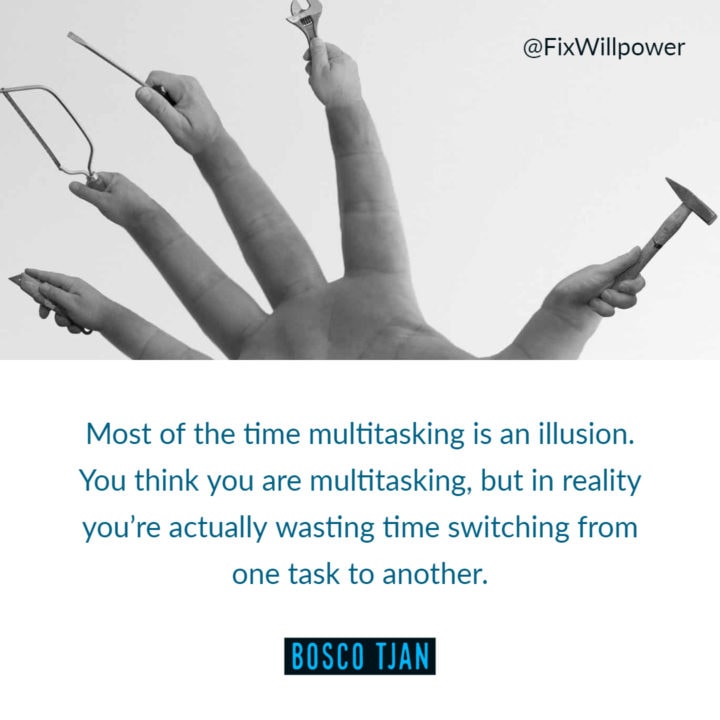
Most of the time multitasking is an illusion. You think you are multitasking, but in reality, you’re actually wasting time switching from one task to another. ~ Bosco Tjan
Time tracking helps you stop multitasking
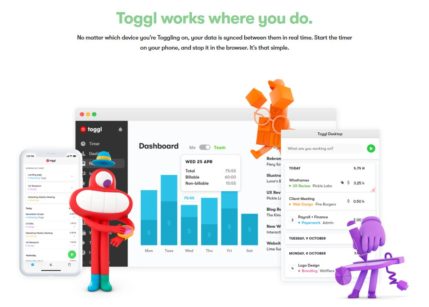
When I started a task, I officially recorded that now I’m doing it. When I switched to another task, then I noticed it more readily, and it helped to avoid multitasking.
Today I use a tool called Toggl. It’s free for your personal use, and it works on all your devices.
1. Prepare everything
Set everything up before you start working.
The reason is that you will start to multitask when you discover that you miss a tool or piece of information. Check if you have all the tools that you need for the job at hand. Do you have all the files and information available?
For example, when writing a report and you don’t know a specific fact you may go to Google to look it up. The quick Google search may turn into 20 minutes of aimless browsing. Do your research before and after the writing. If you need specific information, then write XXXXREASEARCH in its place. After you finish writing, search your text for XXXX and replace them with correct information.
If you miss a critical tool that you absolutely need to continue, then give yourself a time limit for getting it.
Prepare everything, so you don’t have to break your focus and maybe if you are lucky can get into a flow state. Constant interruptions will make you spend more time on the task, and the quality of the result will suffer.
Now, put a sticky note on your screen or workspace “Prepare everything before starting.”
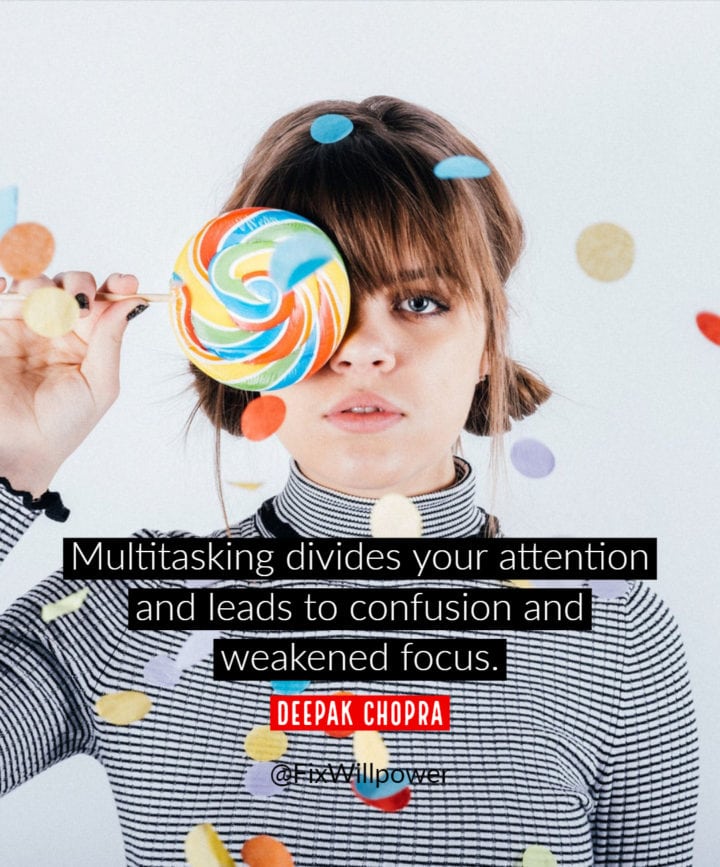
Multitasking divides your attention and leads to confusion and weakened focus. ~ Deepak Chopra
2. Closed doors
If you have a door, then put a sign on it when you are “in session.” If you don’t have the luxury of a personal door, then tell your co-workers that when you are wearing headphones, they should not interrupt you.
3. Quiet mornings
At our company, we are trying to create an environment where people can’t talk to each other in open areas before noon. If talking is necessary, then you have to go to a room isolated from the co-workers you might be interrupting.
Pinkcast 3.15. This is how to stop people from interrupting you on the job.
4. No meetings before noon
In a similar push for solid blocks of interruption-free time, we try to hold meetings only in the second half of the day. No meetings in the morning will give you enough time to get the important tasks of the day done. There may be cases when the meeting is the important task, but that’s not the case usually.
If you can, arrange your schedule so you will work for the first half of the day from home. Not only will you get an amazing amount of stuff done, but you will also beat the morning rush hour. Combine that with becoming an early riser, and you will have something akin to a superpower for your career.
5. Turn off notifications
To make sure that no one can distract you, put your phone in silent mode. Turn off all notifications from email, IMs, and social networks. Close everything that’s not related to the task at hand and focus.
Multitasking is a myth, says McGill University Psychology Professor Daniel Levitin. Switching focus from task to tasks comes at a neurological cost, depleting chemicals we need to concentrate. Levitin’s book is “The Organized Mind: Thinking Straight in the Age of Information Overload.”
6. Focus on the ONE thing
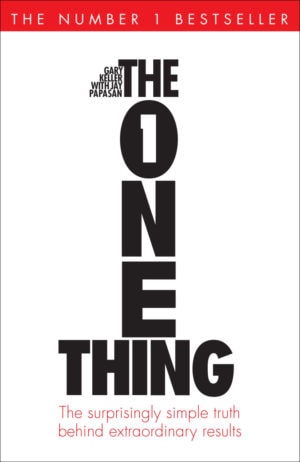
You want less.
You want fewer distractions and less on your plate. The daily barrage of e-mails, texts, tweets, messages, and meetings distract you and stress you out. The simultaneous demands of work and family are taking a toll.
And what’s the cost?
Second-rate work, missed deadlines, smaller paychecks, fewer promotions, and lots of stress.
And you want more.
You want more productivity from your work. More income for a better lifestyle. You want more satisfaction from life, and more time for yourself, your family, and your friends. Now you can have both less and more.
- In the book ONE thing, you’ll learn to
- cut through the clutter
- achieve better results in less time
- build momentum toward your goal
- dial down the stress
- overcome that overwhelmed feeling
- revive your energy
- stay on track
Master what matters to you, the one thing delivers extraordinary results in every area of your life; work, personal, family, and spiritual. What’s your one thing?
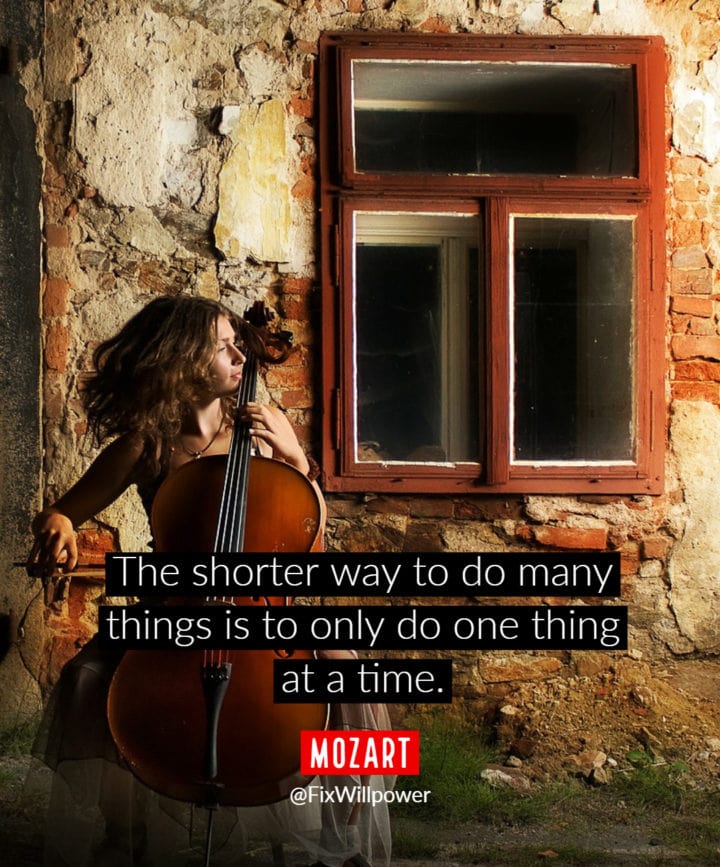
The shorter way to do many things is to only do one thing at a time. ~ Mozart
Meditation for multitasking
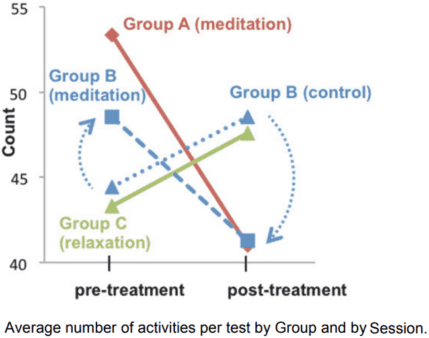 It’s almost impossible to avoid multitasking. A potent method to deal with multitasking is to practice meditation. In one study, participants had to take an 8-week mindfulness-based meditation training. Practicing meditation had a positive effect on task performance.
It’s almost impossible to avoid multitasking. A potent method to deal with multitasking is to practice meditation. In one study, participants had to take an 8-week mindfulness-based meditation training. Practicing meditation had a positive effect on task performance.
Those trained in meditation:
- stayed on tasks longer,
- made fewer task switches, and
- reported less negative emotions after task performance.
Besides the improved multitasking behavior, meditation also improved memory for the task they performed.
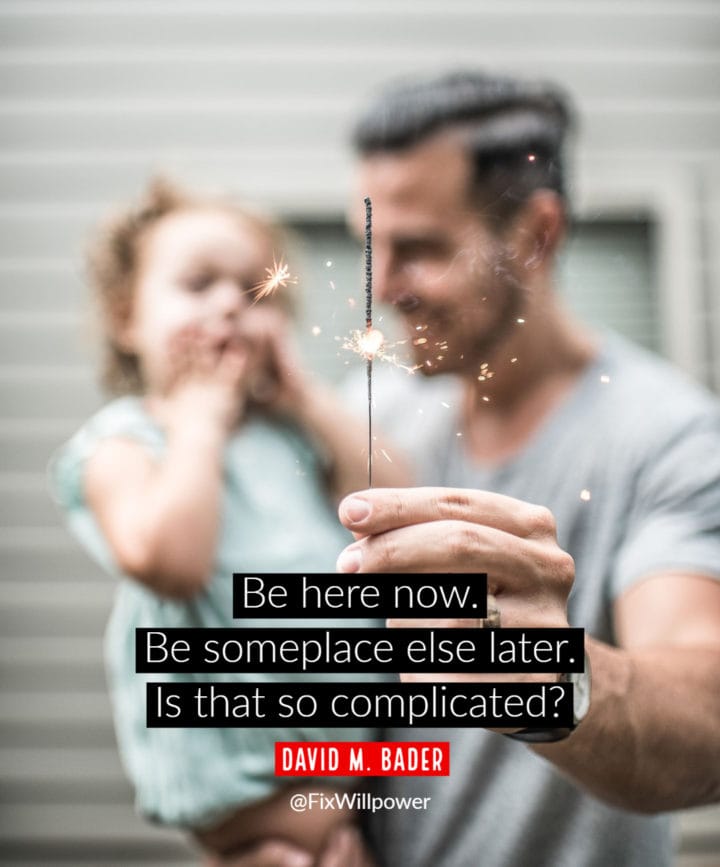
Be here now. Be someplace else later. Is that so complicated? ~ David M. Bader
Now, remember, multitasking does not work! Find ways you can avoid multitasking.
_____________________
Image: Caffeinating, calculating, computerating by Ryan Ritchie
Image: Handyman by John Nyberg
![Read more about the article Why You Should Look at Things from a Different Perspective [VIDEOS]](https://fixwillpower.com/wp-content/uploads/different-perspective-429x314.jpg)
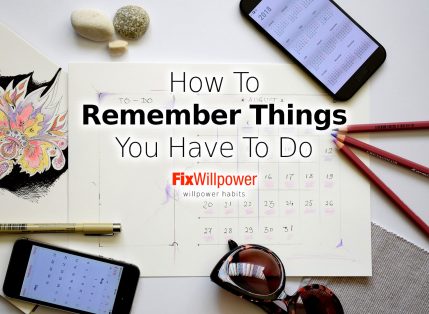
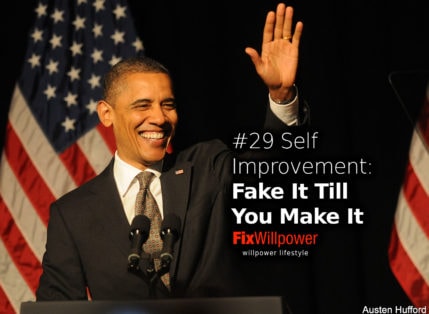
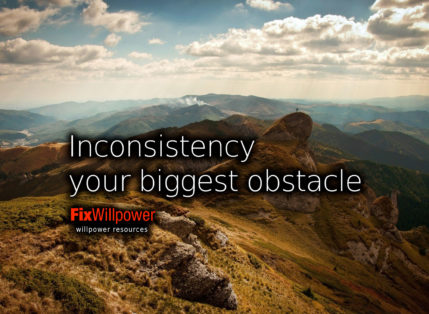
Pingback: The Art of Stress-Free Productivity by David Allen [TED VIDEO] | Fix Willpower
Pingback: 30-Day Challenge: Simplify Your Day | Fix Willpower
Pingback: Improve Your Life #28: Act Now! | Fix Willpower